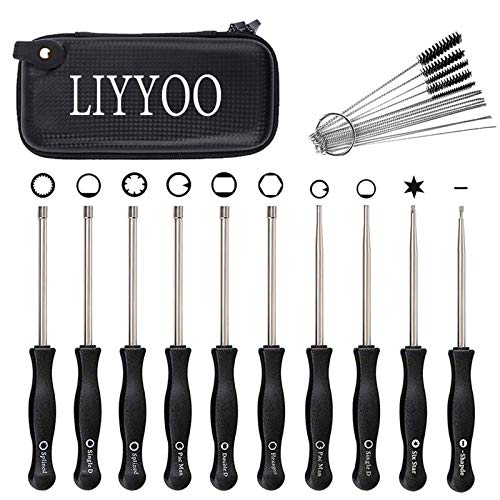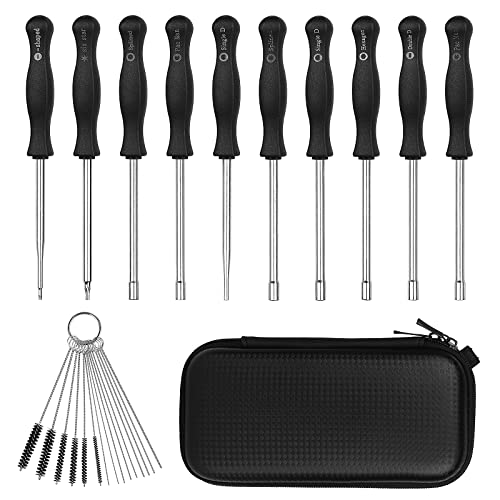Crank bearings are needle type with separate thrust washers. Check your crank play. Should be no up and down and a little side to side. I haven't generally found rod bearings loose on these saws. They tend to be understressed. For the case orings, just clean everything up and coat them with motoseal or yamabond or Hondabond or a gas safe sealer and reassemble.
You are using an out of date browser. It may not display this or other websites correctly.
You should upgrade or use an alternative browser.
You should upgrade or use an alternative browser.
Montgomery Ward chainsaw (TMC24060A - 88cc)
- Thread starter cdahl383
- Start date

Help Support Arborist Forum:
This site may earn a commission from merchant affiliate
links, including eBay, Amazon, and others.
That muffler may require a spacer like here.
https://www.ebay.com/itm/2346378585...3VGR0obRKC&var=&widget_ver=artemis&media=COPY
https://www.ebay.com/itm/2346378585...3VGR0obRKC&var=&widget_ver=artemis&media=COPY
Ok, I was looking online for a while and I can't seem to find anything on the crank bearings or crank seals. The bearings might be okay, but I'll need to replace the seals for sure. Any ideas or sources for seals?Crank bearings are needle type with separate thrust washers. Check your crank play. Should be no up and down and a little side to side. I haven't generally found rod bearings loose on these saws. They tend to be understressed. For the case orings, just clean everything up and coat them with motoseal or yamabond or Hondabond or a gas safe sealer and reassemble.
I'll keep that in mind for the o rings. I'll be careful removing them. I've heard good things about Yamabond. Maybe I'll give that stuff a try.
Did some digging online. Found a guy would went through a Remington Bantam and rebuilt it. He had some part numbers up there. His used the same crankcase as mine (35254). I'm assuming it would also use the same crank bearings and seals.
Crank bearings are Federal Mogul SCE 1211
Crank seal (flywheel side) is SKF 7443
Unfortunately he didn't list the clutch side seal part number. I'll have to do some more research on that.
Crank bearings are Federal Mogul SCE 1211
Crank seal (flywheel side) is SKF 7443
Unfortunately he didn't list the clutch side seal part number. I'll have to do some more research on that.
Seals are CR9838 and 7443. Common sizes.
Great! Thank you!Seals are CR9838 and 7443. Common sizes.

$24.98
$33.99
Oregon L81 ControlCut Chainsaw Chain for 20-Inch Bar, 81 Drive Links, Low-kickback chain, fits several Stihl models Gray
Amazon.com
Another question:
Should I attempt to clean the original cylinder and install the used Ebay piston/rings/rod into the original cylinder? Or should I just use the Ebay cylinder with the Ebay piston/rings/rod so it's all matched up?
Only downside I can see to using the Ebay cylinder would be the paint color would be a little different.
I'd rather not take the rings off of the piston as if they break I'm screwed. I can't seem to find any used or NOS rings on Ebay. Was hoping I could just toss the Ebay cylinder/piston combo into the saw, button it back up, and call it a day. While I'm at it I could install new crank bearings and seals, etc. Just wasn't sure what route would be the best for the cylinder.
Should I attempt to clean the original cylinder and install the used Ebay piston/rings/rod into the original cylinder? Or should I just use the Ebay cylinder with the Ebay piston/rings/rod so it's all matched up?
Only downside I can see to using the Ebay cylinder would be the paint color would be a little different.
I'd rather not take the rings off of the piston as if they break I'm screwed. I can't seem to find any used or NOS rings on Ebay. Was hoping I could just toss the Ebay cylinder/piston combo into the saw, button it back up, and call it a day. While I'm at it I could install new crank bearings and seals, etc. Just wasn't sure what route would be the best for the cylinder.
That will depend on how your original cylinder looks when you disassemble it. My inclination it to keep as many original parts as possible
I agree, I'd rather keep the original cylinder, just depends on how bad it is. The Ebay piston will have been matched up to the Ebay cylinder, so in theory that might be the better route to go, but I'll have to measure everything up.That will depend on how your original cylinder looks when you disassemble it. My inclination it to keep as many original parts as possible
I have some telescoping gauges I can use to measure the cylinder bore in both cylinders and then measure the piston skirt to see what the piston to cylinder clearance is on each cylinder. It wouldn't hurt to remove one piston ring and fit it into the original cylinder just to ensure it's not too far off, but I'm afraid of breaking it taking it on and off the piston as I doubt I'll find new ones anywhere if that happened.
Maybe I can just measure the cylinder and if it's close to the Ebay one just run it as is.
I've never cleaned up a cylinder before that has had aluminum transfer on it. I've heard you can use muriatic acid, but I've also heard that can sometimes destroy the chrome plating. I watched some videos last night and one guy (tinnman) on Youtube suggested just sanding it by hand and taking your time. He cleaned it up with some scotch brite and it looked pretty good when he was all done. Takes some time but it won't damage anything. I guess I'll have to see how bad the cylinder is first before I jump to conclusions on what to do.
Whichever cylinder gives the better piston fit. Let's not pretend you're building a jet engine. These are old, relatively slow turning saws.
Far as cleaning up a cylinder, I don't recall if this will a chrome lining or steel sleeve. Check with a magnet. Lately, I like piece of scotchbrite threaded through a long eyebolt and chucked a drill to scuff these bores. High spots, maybe fine emery cloth to knock them down. Only way to know what you've got is to tear it down. You may only need that piston.
Far as cleaning up a cylinder, I don't recall if this will a chrome lining or steel sleeve. Check with a magnet. Lately, I like piece of scotchbrite threaded through a long eyebolt and chucked a drill to scuff these bores. High spots, maybe fine emery cloth to knock them down. Only way to know what you've got is to tear it down. You may only need that piston.
Haha yeah I hear what you're saying. But if I'm going to go through all the trouble of tearing this thing apart, I want to ensure it's solid when I put it back together. Would hate to do it twice.Whichever cylinder gives the better piston fit. Let's not pretend you're building a jet engine. These are old, relatively slow turning saws.
Far as cleaning up a cylinder, I don't recall if this will a chrome lining or steel sleeve. Check with a magnet. Lately, I like piece of scotchbrite threaded through a long eyebolt and chucked a drill to scuff these bores. High spots, maybe fine emery cloth to knock them down. Only way to know what you've got is to tear it down. You may only need that piston.
I'll measure both cylinders and the piston skirt, see what the numbers say. Then I'll fit the piston in each cylinder and see which feels the best. If they're roughly the same I'll just clean up the original cylinder and use that one. I'd rather use the original if possible. I could always keep the other cylinder as a spare or sell it.
I recently rebuilt my 77 Yamaha IT250 engine and had the cylinder bored, etc. Had to measure everything out, get the correct piston, etc. The good part about that was I was able to still find NOS parts (pistons, rings, etc). Here I'm using used parts, so it's not going to be as precise. But like you said, it's not a precision engine revving to 15K RPM running on the ragged edge, etc.
From what I've read online it sounds like they are chrome plated bores. But I'll check once I get it apart. Using the scotchbrite hooked to a drill sounds like a good idea. I'll be sure to wash the cylinder really good too when it's done.
Hopefully all I need is the piston as you said. That would be ideal. Just swap in the piston on the rod it came with, bolt to the crank, install new crank bearings while I'm in there along with new crank seals, new gaskets, and button it all up. Might take me a while as this will be my first serious teardown, but I think I can handle it. Lots of good resources out there for info (this forum, FB groups, Youtube, etc.).
Similar threads
- Replies
- 23
- Views
- 953
Want to Sell
SOLD Powerkraft (montgomery ward) chainsaw
- Replies
- 5
- Views
- 511












